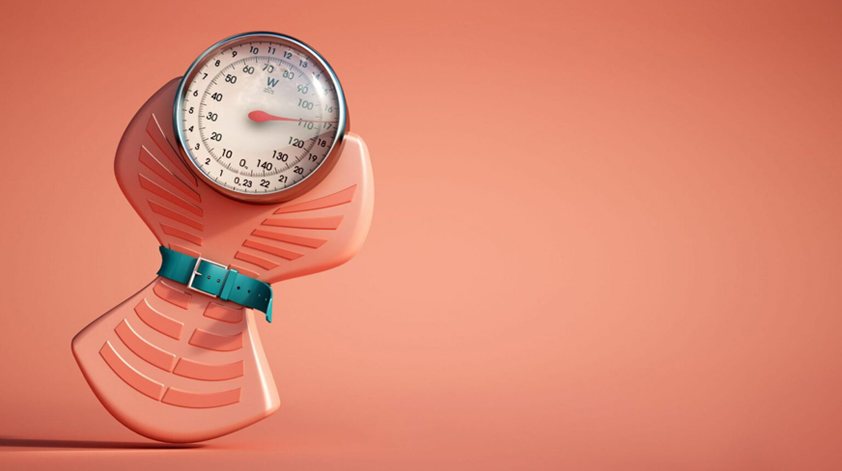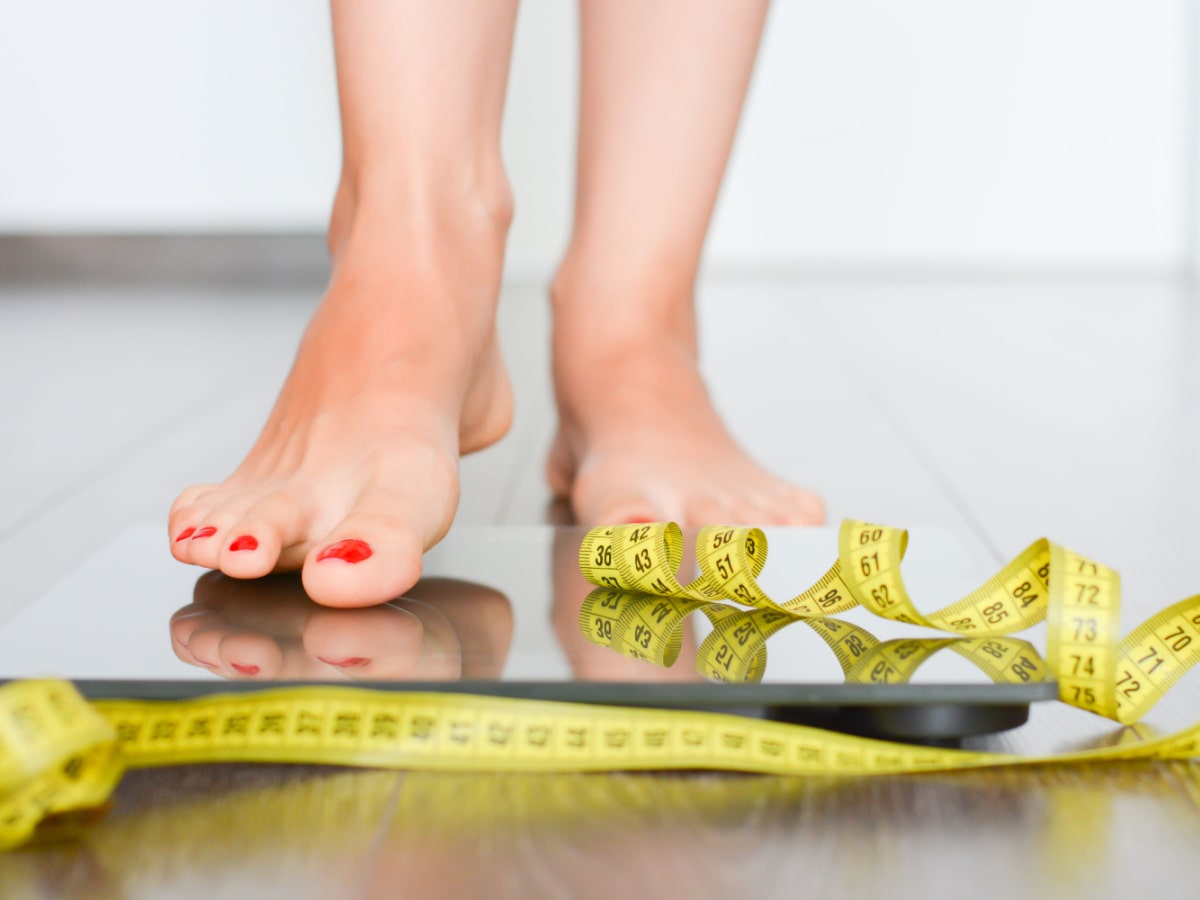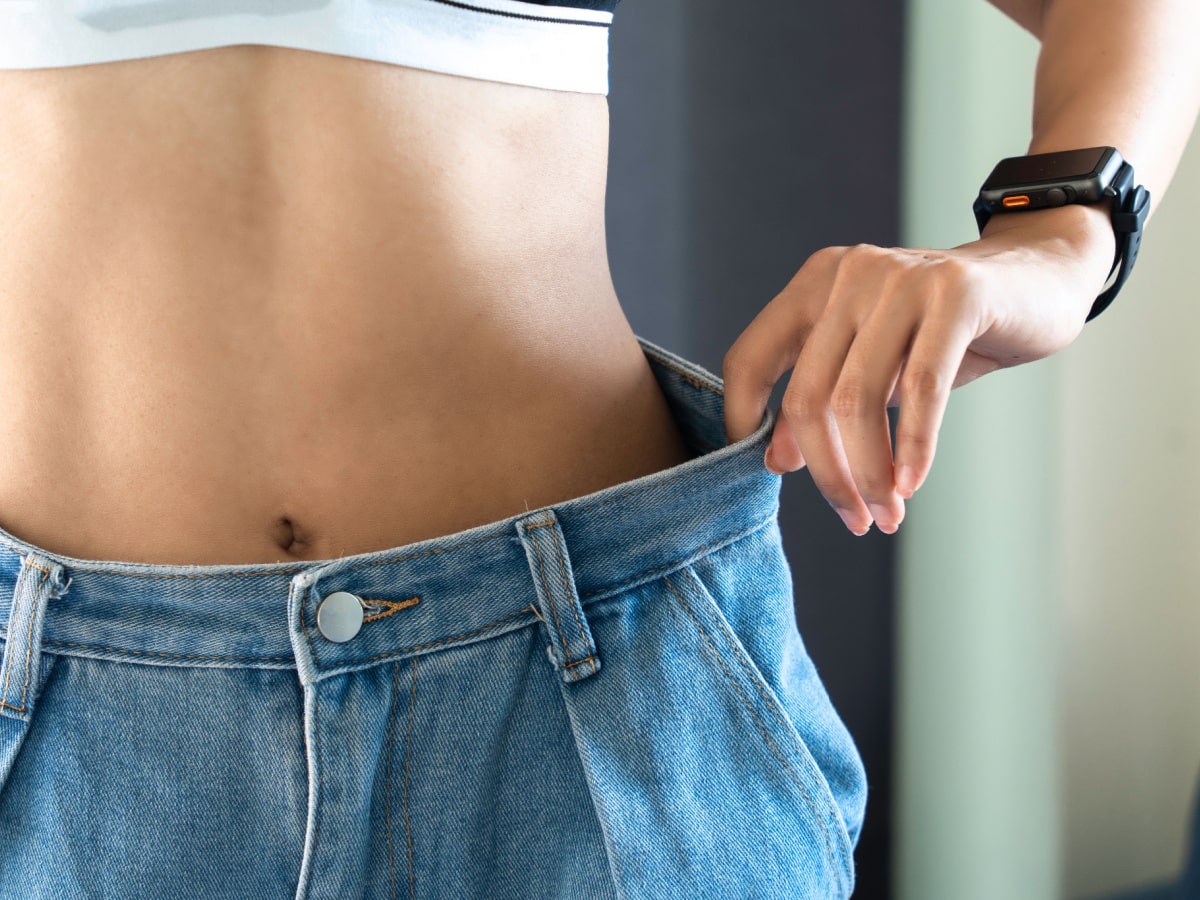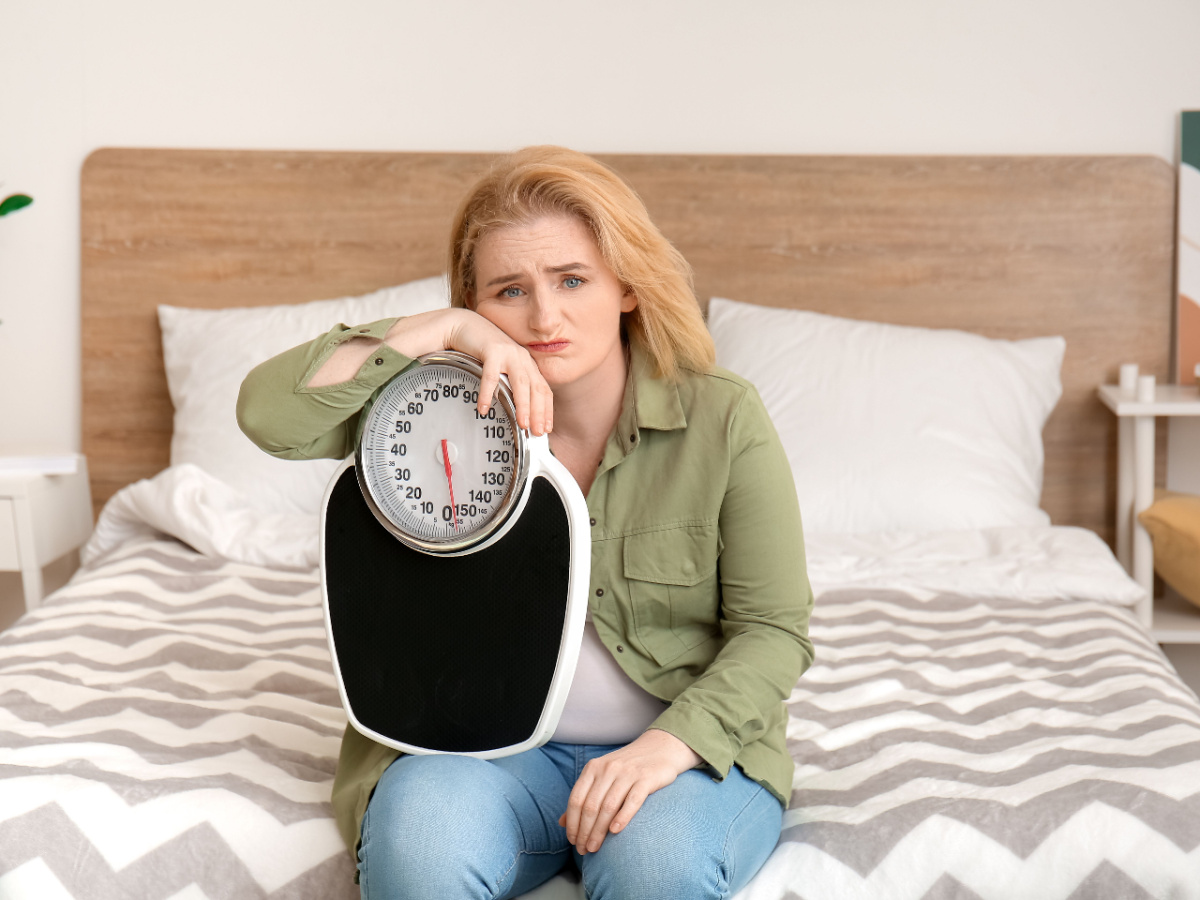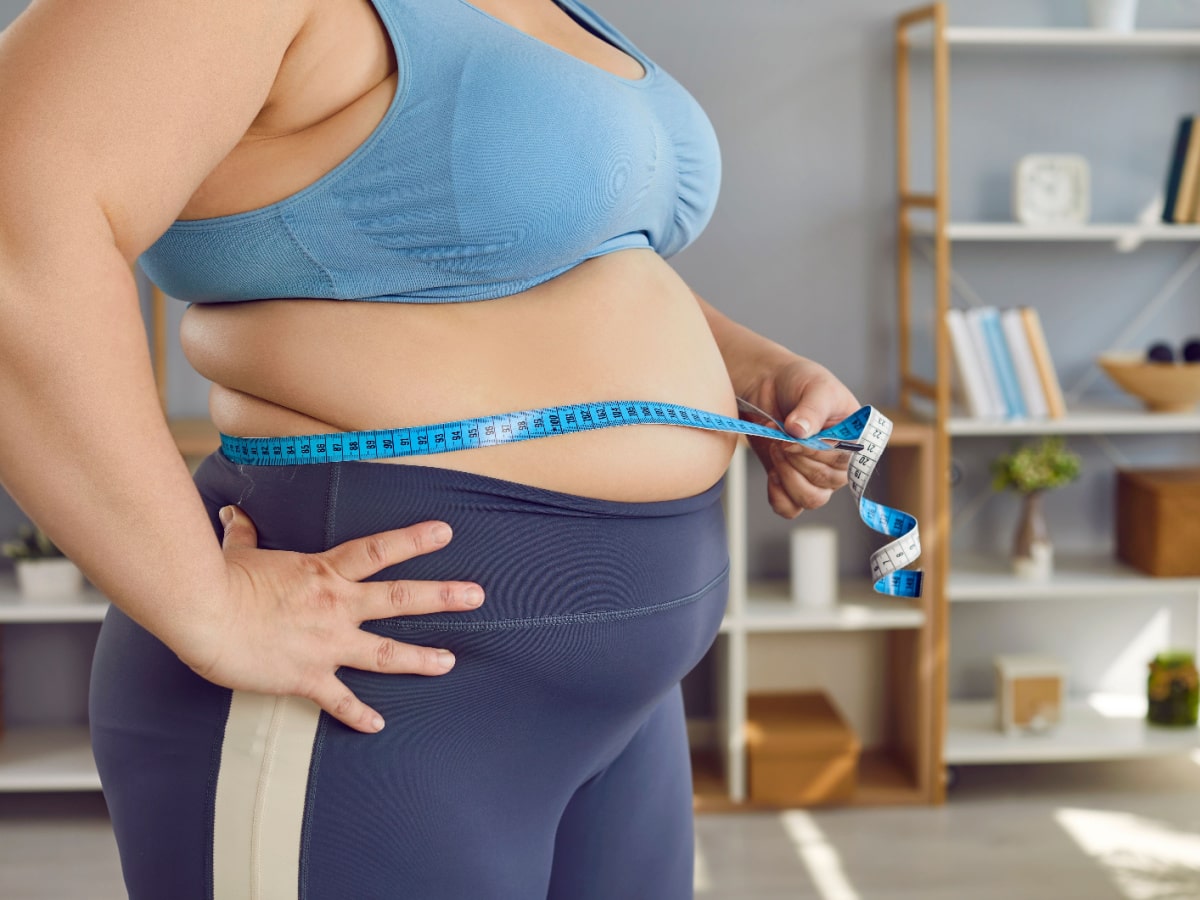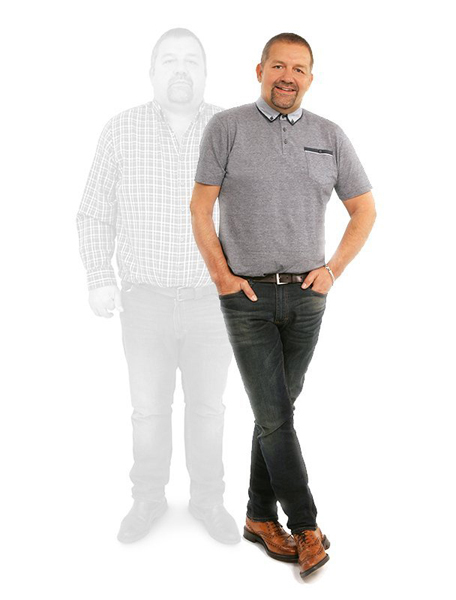Table of Contents
One pound of mashed potatoes weighs the same as one pound of raw potatoes. No matter how you slice, scallop, deep fry, or roast it, a pound is a pound.
So why do the tens of thousands of weight-watching women across the Western world preach the misinformed belief that lean muscle weighs more than fat? It is something I hear patients at our clinics repeat with frustrating regularity to soften the blow of the numbers on the weighing scale. When the numbers begin to tip in an unfavourable direction, it is easy to find comfort in the theory that muscle weighs more than fat—especially if you are resistance training.
Does muscle weigh more than fat?
Although the question “does muscle weigh more than fat?” is one asked by many, it misses the mark, in a sense. Fat weight and muscle weight in equal quantities will have the exact same effect on body weight. However, the two types of weight have very different effects on health and appearance. While fat and lean muscle weighs the same pound for pound, their composition varies immensely. Muscle does have a greater density than fat, causing a leaner appearance, whereas free-floating, Jelly-like, fatty tissue needs more space to jiggle around, due to its low volume. Hence, someone with a high body-fat percentage will look overweight in comparison to an individual with a high lean tissue percentage.
The best way to illustrate this concept is to use the mashed potatoes analogy. The consistency of mashed potatoes is comparable to lard in your body – lumpy, buttery, and visually unappealing in your Lycra cycling shorts, I refer you to my previous column on MAMIL’s.
Contrastingly, raw potatoes are a firmly packed matter, requiring very little room for expansion. This means that muscle is much denser than fat, causing a sharp difference in appearance. In other words, I’d prefer my backside to look like two raw King Edwards than two heaps of mashed potato. All this is to say no, muscle does not weigh more than fat, but it does have a much different set of properties.
Adding muscle for a healthier body
Now that we have dispelled the myth that muscle weighs more than fat, let’s get clear on why lean muscle is so valuable for sustaining a healthy lifestyle and physique.
I’ve written previously about the ineffective nature of cardio exercise for fat loss. While cardio fitness is essential for maintaining a healthy heart and reducing disease, it is also vital to implement a resistance training (lifting weights) routine as well if you want to burn excess body fat.
Many of our female patients fear two things: Wrinkles and Weight Training. I cannot count the number of times I have heard our female patients say, “I would like to weight train, but I don’t want to become bulky.”
Well, I have great news! You won’t turn into the Incredible Hulk from resistance training. It is impossible, unless you are injecting testosterone or growth hormones into your system. A woman with a visible Adam’s apple and Brad Pitt’s jawline are often sure signs of a steroid user. Lean tissue is your body’s best ally in that it boosts the metabolism.
Also Read: How To stop Overeating
Our female patients frequently describe how they are in constant search of the next magic weight loss secret. Put down those cardboard-tasting high protein bars, peel off those SPANX, and pick up a pair of dumbbells. One pound of muscle burns more calories than one pound of fat. Aim for low-weight, high-repetition routines to achieve a lean, toned physique.
Sometimes the scales are not a great indicator of fat loss. At the clinics, we often recommend patients gauge their weight by how their clothes fit, rather than being a slave to the scales.
After an arduous workout and a week of banishing decadent delights from our diet, we all like an affirmation that our weight has decreased. Do not look to the scale, as it will not always have your best interests at heart.
Weighing in can be a real motivation vampire when the numbers don’t reflect the work you have been putting in. Simplify your life. If your jeans fit, or are starting to become baggy, chances are your weight ratio is shifting from fat mass to lean muscle.
The exterior of our body is a direct reflection of what goes into it. If you ingest rubbish, consequently, you will look and feel like rubbish. The human body is a machine, requiring the proper maintenance and fuel to run sufficiently. My favourite mantra is “you can’t outrun a bad diet”, meaning no amount of exercise can help if your diet is rubbish.
Exercises for shedding fat weight and building muscle weight
Adding muscle isn’t the easiest activity in the world, and converting body fat into lean muscle is even more challenging. That said, it’s a challenge best taken, as changing your body composition into a better balance between body fat and muscle is vital for better health. But how exactly should you go about shedding body fat and replacing it with muscle?
Well, the obvious answer is exercise, as I’ve already stated. This doesn’t mean you need to take up marathon training and start running a half marathon every morning, however. Your training plans can start slowly with basic strength training exercises several times a week, such as dumbbell exercises and squats.
If you’re a beginner with dumbbells, it’s a good idea to start small, then build up to using heavier weights. This will reduce the risk of damaging your muscles as you exercise. Make sure you don’t focus too much on one area, or the neglect of others will be quite obvious. You can also build muscle without the use of exercise equipment, using only your own body weight. Pushups, pullups, situps, and so on are perfect for both building muscle and getting rid of body fat, making for a much healthier body composition.
Also Read: 6 Reasons To Lose 3 Stone
Once you feel comfortable, you can incorporate cardio training and high-intensity interval training (HIIT) to start really burning that body fat. For only a short time out of your day, exercises such as the Tabata Ride can really do a number on calories and body fat, stripping it away and quickly replacing it with muscle, if you can keep it up regularly. It’ll also work wonders on your health in a broad sense, with great benefits to your heart, blood flow, energy, and more. Better yet, many of these exercises can be done from the comfort of your own home, making them perfect for doing over an otherwise lazy weekend, or if the weather isn’t great.
The importance of diet for body weight
Although exercise is surely important, it’s only one side of the coin to improve your body composition. As I said earlier, no amount of exercise will help you escape a terrible diet, so if you want to shed that body fat and replace it with muscle, you need an appropriate diet.
A good diet is a nutritious diet. The more you give your body what it needs, the better it will be for your health, and the less it will moan at you for more food in general. This is vital for silencing pesky cravings and helping you resist the temptation to eat junk food. To increase the amount of nutrition in your diet, you should see if your meals include healthy ingredients. This includes foods rich in protein, like poultry, beef, and other lean meats.
Dairy products are an especially good choice, as they package protein in with a range of other top-notch nutrients your body needs to remain in good health. This is especially important if you do strength training, as protein is a much-needed nutrient for building muscle. If your diet lacks protein, your muscle development will suffer as a result.
Adding foods low in fat is also important, meaning you need a good helping of leafy greens on your plate. Although not the most interesting ingredient, green vegetables are very low in fat, and in calories generally, making them great for your health. Of course, all this would be for nothing if you’re a serial snacker, eating processed foods that are high in fat between meals.
This certainly isn’t to say you can’t have a biscuit or two with a cup of tea, but you need to be aware of the calories you’re taking in, and careful that you aren’t resupplying the fat you’re burning off. Cutting down on these foods that are high in fat and raising your intake of nutritious foods will help you tone your body into a well-oiled machine, one with a perfect body composition of lean muscle and a healthy amount of fat. Your appearance isn’t the only thing that will benefit, as your overall health will improve, too. If you implement these tips, your future self will surely thank you.
Does Muscle Weigh More Than Fat: Frequently asked questions
As with any topic regarding health and weight loss, we get a load of questions ranging from broad to highly specific. We thought we’d put together some of the most asked and provide answers all in one go.
Is muscle heavier than fat?
As is the theme of this article, no. This is the “does muscle weigh more than fat myth”, and is up there with the “ what weighs more, a kilogram of steel, or a kilogram of feathers” joke. Pound for pound, there is no difference in the weight of the two, but they are very different in other ways. Muscle mass is more dense, as we’ve explained, and it has serious effects on your appearance and health.
Does body muscle make you weigh more?
This is essentially a variation of the first question, though there’s a little more to it. While an increase in muscle mass will increase your overall body weight, it won’t make you weigh more than an equal measure of fat, despite the fact that muscle is more dense than fat. That said, muscle is more beneficial for your health and appearance, so building muscle is almost always the better option if it’s a choice between the two.
How much weight does muscle add?
As we’ve mentioned, there is no difference between a pound of muscle and a pound of fat when it comes to the weighing scale. If you replace a bit of fat with the same amount of muscle, you will weigh exactly the same amount as you did earlier. That said, replacing fat with muscle will make your figure look much more toned, as muscle is much denser than fat. You’ll also get a bunch of health benefits, in addition to sporting a better look.
How do you tell if your weight gain is muscle or fat?
Your weighing scales can tell you whether you’re gaining or losing weight, but they can’t tell you why. Luckily, it should be fairly easy to tell whether you’re gaining muscle or fat by looking at your activities leading up to the weighing session. If you’ve been putting on weight while doing vigorous exercise, chances are your added weight is muscle. However, if you’ve been dieting and noticed the scale is steadily climbing, that’s probably additional fat, and you might want to consider tweaking your diet.
For a more accurate measurement, you might be able to get a body composition test if you’re a member of a gym. Some gyms offer this service, with the test being conducted by a professional, measuring the fat percentage of your skin. If the fat percentage is going down, your weight gain is almost certainly muscle.

